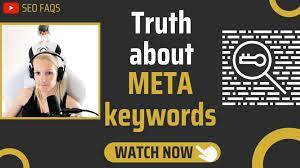The Role of Meta Keywords in SEO
Meta keywords have long been a topic of discussion in the realm of search engine optimisation (SEO). In the early days of SEO, meta keywords played a significant role in helping search engines understand the content and relevance of web pages. However, their importance has evolved over time.
Meta keywords are HTML elements that provide information about the content of a web page. They are typically placed within the head section of a webpage and are not visible to site visitors. While they were once a key factor in determining search engine rankings, their impact has diminished due to abuse and manipulation by website owners.
Search engines like Google have become more sophisticated in assessing the relevance and quality of web content. As a result, they rely less on meta keywords and more on factors such as high-quality content, backlinks, user experience, and mobile-friendliness to determine search rankings.
Despite their diminished importance, it is still good practice to include relevant meta keywords that accurately reflect the content of a web page. This can help search engines understand the context of the page and improve its visibility for relevant searches.
In conclusion, while meta keywords may not carry the same weight in SEO as they once did, they can still play a role in providing additional context to search engines. However, focusing on creating high-quality content that meets user intent and engages your audience remains paramount in achieving SEO success.
Understanding Meta Keywords in SEO: Common Questions Answered
- What are meta keywords in SEO?
- Do meta keywords still impact SEO rankings?
- How should I choose meta keywords for SEO?
- Are meta keywords necessary for SEO success?
- Can I use the same meta keywords on every page of my website?
What are meta keywords in SEO?
Meta keywords in SEO refer to the HTML meta tags that are used to provide information about the content of a web page to search engines. In the past, meta keywords played a crucial role in helping search engines understand the relevance and context of a webpage, influencing its ranking in search results. However, their significance has diminished over time due to abuse and manipulation by website owners. While including relevant meta keywords can still provide some context to search engines, factors such as high-quality content, backlinks, and user experience now carry more weight in determining search rankings.
Do meta keywords still impact SEO rankings?
The question of whether meta keywords still impact SEO rankings is a common one among digital marketers and website owners. While meta keywords were once a crucial factor in determining search engine rankings, their influence has significantly diminished over time. Search engines like Google now place more emphasis on other factors such as high-quality content, backlinks, user experience, and mobile-friendliness when ranking web pages. While including relevant meta keywords can still provide some context to search engines, their direct impact on SEO rankings is minimal compared to other key ranking factors in today’s digital landscape.
How should I choose meta keywords for SEO?
When selecting meta keywords for SEO, it is essential to focus on relevance, specificity, and user intent. Choose keywords that accurately reflect the content of your web page and are directly related to the topic at hand. Avoid generic or overly broad keywords that may not effectively target your desired audience. Conduct keyword research to identify relevant terms that have search volume and align with the intent of users searching for your content. Additionally, consider long-tail keywords that are more specific and have less competition, increasing the likelihood of ranking well in search results. By selecting carefully curated meta keywords that are relevant, specific, and aligned with user intent, you can enhance the visibility and discoverability of your web pages in search engine results.
Are meta keywords necessary for SEO success?
The question of whether meta keywords are necessary for SEO success is a common one in the digital marketing realm. While meta keywords were once a crucial element in helping search engines understand the content of web pages, their significance has waned over time. Today, search engines like Google place more emphasis on factors such as high-quality content, backlinks, user experience, and mobile-friendliness when determining search rankings. While including relevant meta keywords can still provide some contextual information to search engines, they are no longer a critical component for achieving SEO success. Focusing on creating valuable and engaging content that meets user intent is now considered more essential in driving organic traffic and improving search visibility.
Can I use the same meta keywords on every page of my website?
When considering the use of meta keywords in SEO, a frequently asked question is whether it is advisable to use the same set of meta keywords on every page of a website. While there is no strict rule against using the same meta keywords across multiple pages, it is generally recommended to tailor meta keywords to reflect the specific content and focus of each individual page. By customising meta keywords for each page, you can provide search engines with more accurate information about the content and relevance of that particular page, potentially improving its visibility and search engine rankings. Ultimately, while using the same meta keywords on every page may not be detrimental, optimising them for each unique page can enhance the overall SEO effectiveness of your website.

